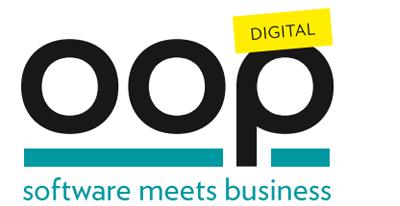Please note:
On this page you will only see the English-language presentations of the conference. You can find all conference sessions, including the German speaking ones, here.
The times given in the conference program of OOP 2023 Digital correspond to Central European Time (CET).
By clicking on "VORTRAG MERKEN" within the lecture descriptions you can arrange your own schedule. You can view your schedule at any time using the icon in the upper right corner.
Track: Software Architecture: New Approaches & Fundamentals
- Dienstag
07.02. - Mittwoch
08.02. - Donnerstag
09.02.
Many approaches to software architecture assume that architecture be planned at the beginning from the project's quality goals. This is problematic as the macroarchitecture is hard to change, and the quality goals it's based on tend to be unknown at the beginning of a project, or change later. Consequently, it would really be preferable if we could defer the macroarchitectural decisions until later.
This talk shows how to do this using systematic modelling and functional programming.
Target…
With GraphQL a modern and flexible way of providing APIs for our data is emerging.
The clients specify which data they need, the provisioning of data becomes more flexible and dynamic. Over-fetching or under-fetching are history.
But does this mean we have to rewrite all APIs to benefit? How can we retrofit a GraphQL API onto our existing API landscape?
We will explore three different approaches.
Target Audience: Architects, Developers
Prerequisites: Basic knowledge in API design and Java
Level:…
How to structure your program right? This has been a central question since the beginning of software development. Layers are a start, but not enough. Hexagonal, Onion, and Clean Architecture have joined the club together with DDD's Tactical Design and Pattern Languages. Great system design is not achieved with one of these alone. Putting all the ingredients together we can build the Architecture Hamburger – the combination that makes high quality software possible.
Target Audience: Architects,…
One of the fundamental strategies of Agile Modeling is that artifacts, including architecture models, should be just barely good enough (JBGE). Another way of saying this is your models should be sufficient for the task at hand, no more and no less. But sufficiency is contextual in nature, it depends.
In this session we will look at the issue of model sufficiency, exploring the risk factors that motivate us to model more as well as the conditions that enable us to model less.
Target Audience:…
In a microservices architecture, services shall be as loosely coupled as possible. Still, they need to communicate with each other in order to fulfill business requirements. This talk will help you shape an answer for the typical questions (like shall I be synchronous or asynchronous and what's a good protocol to use?). You will better understand not only the architectural implications but also the effect on the productivity of your teams.
Target Audience: Developers, Architects
Prerequisites:…
Software Development based on a distributed architecture provides both several advantages and new challenges. In order to take advantage of the distribution it requires implementation of service discovery, routing, load-balancing, resilience mechanisms and more. These requirements can be covered by language frameworks or the underlying platform.
This talk will walk through a comparison of various approaches with focus on frameworks, Kubernetes and extending options like Service Meshes and eBPF.…

